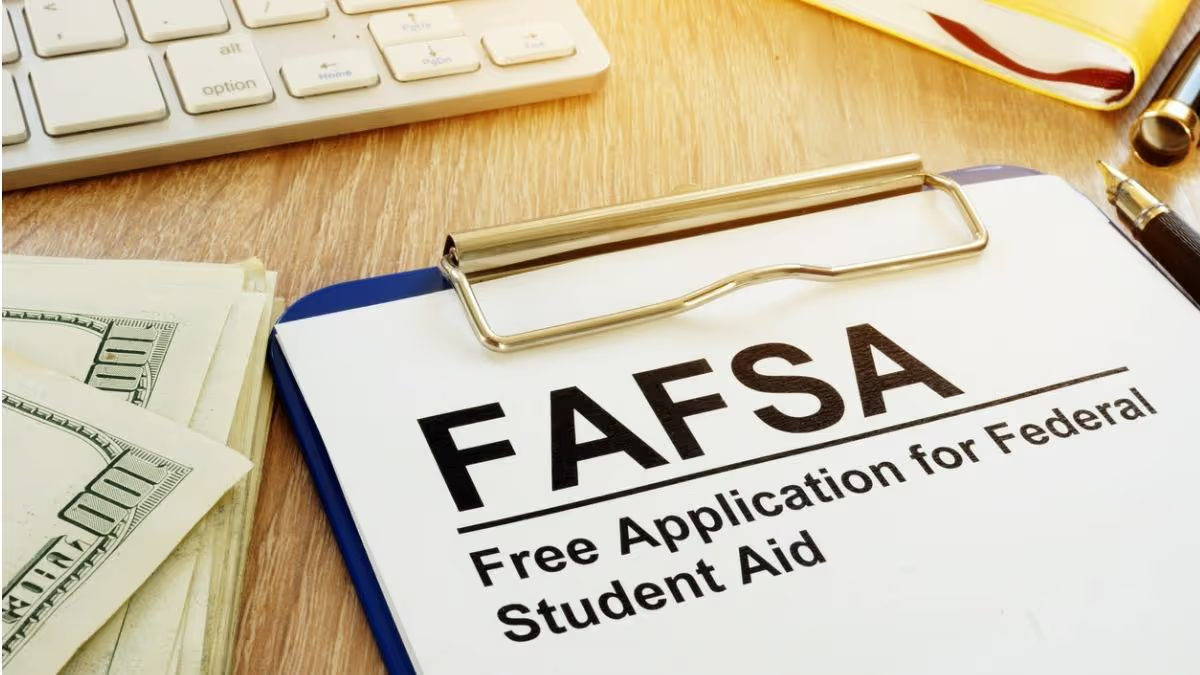Understanding the Trump Administration's Stance on FAFSA and Student Aid
You may have heard rumors about Donald Trump’s views on higher education and the Free Application for Federal Student Aid (FAFSA). If you or your family are planning to apply for financial aid, staying informed about proposed changes and presidential policies is important. Here’s a clear look at what’s really happening around FAFSA, student financial aid, and the Trump administration’s record and positions.
What Is FAFSA and Why Does It Matter for College Students?
FAFSA is the official application for federal student financial aid programs. These include Pell Grants, subsidized and unsubsidized student loans, and work-study opportunities. FAFSA is crucial for millions of students and families each year. Without submitting it, students miss out on federal, state, and college-based financial assistance.
Key points to remember:
- FAFSA is the gateway to most need-based financial aid in the U.S.
- Many scholarship programs also require FAFSA information.
- FAFSA is updated annually so students must re-apply each year.
Examining Claims: Does Donald Trump Want to Eliminate FAFSA?
Questions have spread about whether President Trump planned to abolish FAFSA or end federal financial aid. Examining official policy statements and federal budgets is essential. During his term (2017-2021), Trump never proposed getting rid of FAFSA itself. The application process was not eliminated. However, his administration did propose significant changes affecting federal student aid funding and FAFSA rules.
Key policy details from Trump’s proposed budgets:
- Reduce or eliminate some federal grant programs, such as Public Service Loan Forgiveness.
- Cut funding for the Federal Work-Study program and Supplemental Educational Opportunity Grants.
- Maintain basic access to Pell Grants but suggested capping or restricting eligibility for certain borrowers.
- Simplify the FAFSA process to make it easier to complete, rather than remove it.
No executive orders or signed legislation from the Trump administration directly aimed at eliminating FAFSA or ending all student aid programs.
How Did Trump’s Proposed Education Budgets Impact FAFSA Applicants?
If you were a college student or applicant during the Trump administration, you may have noticed some changes to federal student aid. Budget proposals included:
- Attempts to streamline and shorten the FAFSA application.
- Calls to cut existing loan forgiveness and grant programs.
- No proposals to eliminate FAFSA entirely.
The U.S. Congress ultimately controls the federal budget. Many proposed cuts did not go into effect because lawmakers restored funding to several programs. The core FAFSA application process stayed in place each year.
What Are the Common Misconceptions About Trump and FAFSA?
Let’s dispel a few myths:
- Trump did not sign any law that got rid of FAFSA.
- The Trump administration aimed to change, not remove, financial aid processes.
- Rumors about the FAFSA’s elimination often mix up budget proposals with actual law.
- Every president's budget includes proposed changes; Congress must approve them.
How Do Changes to Federal Student Aid Affect the FAFSA Application Process?
You may worry that changes to federal aid structure will impact your FAFSA eligibility. In reality, the application itself remains, but the types and amounts of aid available can shift with new policy directions.
If a future administration, including a possible Trump reelection, proposes new funding changes:
- The FAFSA form and process will likely remain, but grant and loan amounts could change.
- Congress has final say on whether major changes to aid programs occur.
- Many private colleges use FAFSA data for institutional scholarships, regardless of federal changes.
What Did Trump Actually Say About FAFSA and College Financial Aid?
President Trump spoke publicly about the wish to cut "wasteful" spending and streamline government aid. His administration mentioned the need for simpler processes for students. He did not call for eliminating the FAFSA entirely. The aim was to make the process more user-friendly while reducing federal spending where possible.
Trump repeatedly criticized the high cost of college and volume of federal student debt, but focused on:
- Lending limits and program funding levels.
- Support for alternatives to four-year college, like apprenticeships and workforce training.
- Student loan repayment options rather than total student aid elimination.
FAQs About FAFSA Changes and Trump Administration Policies
Did President Trump get rid of FAFSA?
No, President Trump did not eliminate FAFSA. The application remained in place during his presidency. No law or order was issued to end it.
Will FAFSA stop existing if Trump is reelected?
There is no official policy to get rid of FAFSA in Trump’s campaign proposals. Only Congress can eliminate federal student aid applications by passing new laws.
What did the Trump administration change about student loans?
The Trump administration supported changes to federal student loan forgiveness and interest subsidies. Some proposals aimed to simplify loan repayment, but no major changes became law during his term.
How can I stay up to date about FAFSA and student aid policy changes?
Regularly check the Federal Student Aid website and updates from the Department of Education. Financial aid offices at colleges also share the latest on FAFSA rules and deadlines.
What Should Students and Parents Expect Moving Forward?
FAFSA will still be the application for federal student aid for the foreseeable future. Political debates will continue about the size and scope of student loan programs, Pell Grants, and FAFSA eligibility. If changes occur in federal education policy, you can expect:
- Annual updates to the FAFSA form, but likely not its elimination.
- Adjustments to specific grants or loan amounts based on Congressional funding decisions.
- Ongoing proposals for financial aid reforms, no matter which party controls the White House.
Stay proactive by applying for aid on time each year and staying tuned to news from official education sources.











.svg)



